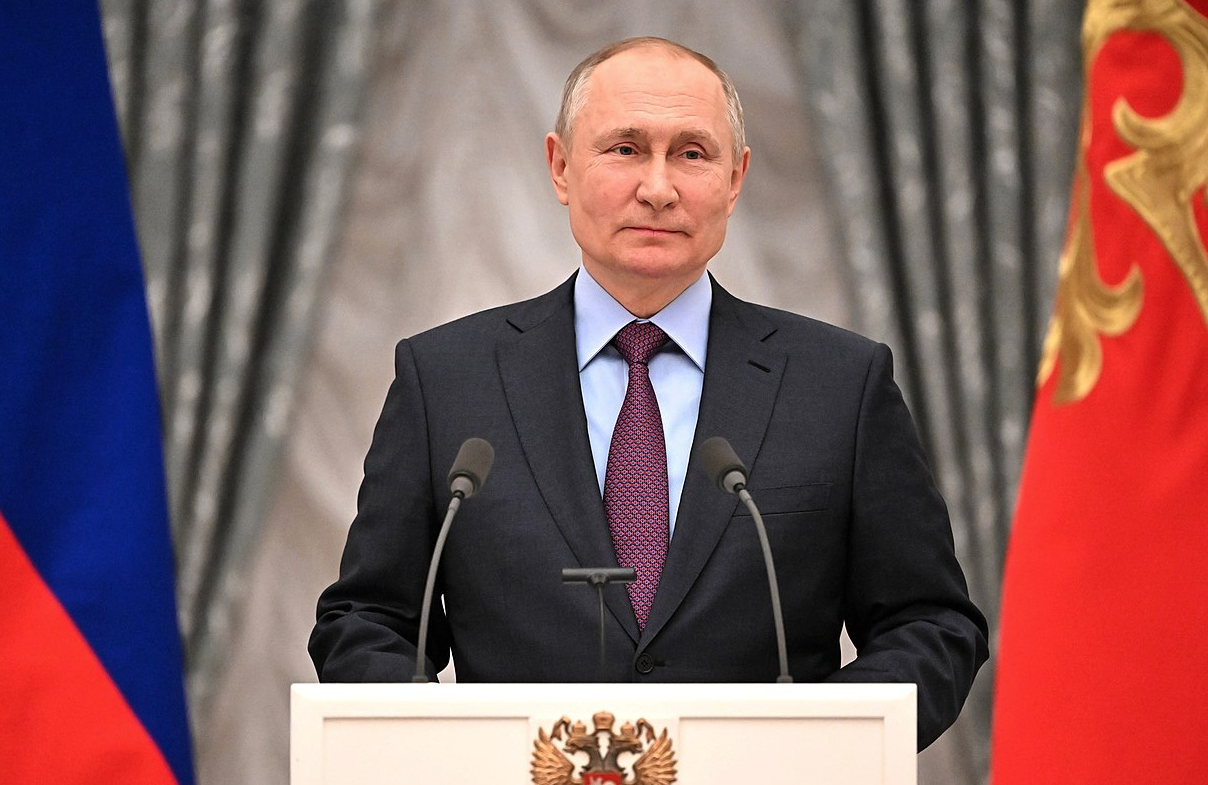
New forms of misinformation about the history of fascism are occurring in the United States and Europe, and they are not only coming from Russia. To clarify, the main and most dreadful distortion of fascism came to a head with the Russian invasion of Ukraine, and yet it did come from Russia. The idea put forward by Vladimir Putin to justify his unjustifiable war on the basis of the anti-fascist legacy could not be further from the truth about the past and its relation to our present. There is nothing Nazi or genocidal about the government of Ukraine whose president is Jewish. Nor is there anything anti-Nazi about Putin’s government. He is a dictator and the historical discussion should begin with the kind of dictatorship he imposes in Russia and which he also wants to impose in Ukraine.
If Nazism does not serve to describe Ukraine, can Putin be accused of being a Nazi?
They line up to speak of Putin as the new Hitler, of his regime as the new totalitarianism, and of his terrible invasion of Ukraine as a continuation of the Holocaust. There are many known cases, but it is worth mentioning the most recent and paradigmatic case of Michael McFaul, former U.S. ambassador to Moscow. McFaul is one of the most influential opinion-makers in the United States and in a recent interview he stated that “one difference between Putin and Hitler is that Hitler did not kill ethnic Germans, German-speaking people”.
This kind of unrehearsed commentary in which the ex-diplomat problematically accepts the Nazi distinction between Aryans and non-Aryans ignores the historical fact that German-speaking German Jews were indeed Germans. In his eagerness to criticize Putin, McFaul argued that in the category “genocide” Putin is worse than Hitler.
As expected from the giant rage, McFaul was widely criticized and apologized, saying, “I will never again make comparisons to Hitler…Without historical analogies, I will keep my analysis and comments focused on the present evil: Putin.” All or nothing. If you can’t talk about Hitler as a synonym for Putin, should we forget about the past to better understand the present? This is a clear example, and similarities abound with other opinion-makers that historical misinformation leads us to nothing.
In Latin America, and also in Europe, anti-colonial or anti-imperialist history is often confused with a clear nationalist campaign of Russian aggression. The case of Nicaragua, Cuba or Venezuela, they are dictatorships that may have an ideological sympathy with Putin’s autocracy. In these cases, the interest in history is displaced by ideological voluntarism that simplifies reality to suit their leaders.
The same can be said of the views of Cristina Kirchner in Argentina or Evo Morales in Bolivia. The result of these positions is, in turn, misinformation about the past, although no one serious seems to take them seriously outside their entourages. Also, characters like Brazil’s President Jair Bolsonaro accept Putin’s propaganda and then link it to their own authoritarian fantasies about the future of the world. Like Donald Trump, the raison d’être of their historical mythologies is to be at the service of their cause and, therefore, disinterest in the real past is absolute.
Autocratic bigotry is not part of the debates, especially in the global north, among many of those who, reasonably, oppose Russia’s war. And yet, without much historical reason, many of these Putin critics argue that Ukraine is persecuted as European Jews were and emphasize the Hitler-Putin equation. They say little about their relationship to the Russian past, in general, and Stalin, in particular.
Here and there, these debates are not necessarily Putin-style forms of propaganda, but they do not fail to distort or misunderstand history, and their result is, moreover, to encourage misinformation about the past.
Simplifications are increasing quickly. As historians, one of our tasks is to insist that the past presents continuities, but also breaks with the present. In principle, history cannot satisfy the current demand for simple explanations. In this context, historical explanations are replaced by simple and banal arguments. Simplicity provides what is expected of it: ephemeral explanations that no one will take seriously in the near future.
Can we talk about the present without historical exaggerations and simplifications? Can we stop minimizing the Holocaust in the face of Putin’s war against Ukraine? The Holocaust was not a war between two countries, but a racist attack by a fascist state on particular citizens of a particular ethnic group.
Sometimes, the Holocaust represented – in the histories of the far-right, fascism, and neo-fascism – an inspiration for murderers. This was the case, for example, with the Argentine dictatorship, whose murderers often promised to continue the Nazi massacres. For historians, the Holocaust can be analyzed against other murders, but the problem is when non-historians merge different histories without explaining continuities and ruptures in history. In these cases, the analogy obscures the past and the present.
Analogy without context even ends up insulting the memory of the victims and misleading the public. Russia can afford to lose this war; the one who cannot lose it is Putin, and therein lies that dissonance between Russia’s interests, which are harmed by this war, and Putin’s only expressed through fanatical propaganda.
The Russian dictator is a typical example of an autocrat who thinks more of himself than of his country since the consequences of his actions are clearly detrimental to his people. But this does not imply that he can be considered a Nazi. To put it in Argentine terms, Putin is more similar to a Galtieri (the dictator who started the war against the United Kingdom in 1982) than to Hitler.
The current war against Ukraine is more conventional (in terms of European history and others) and as a historian of fascism in the past, I am not convinced that it has reached the point of being genocidal or totalitarian. Nor do I believe that Putin is a fascist. So far, I do not see in him central elements of fascism such as mobilization of organized masses, also in paramilitary terms, glorification of violence, or policies of xenophobia and racism. However, I do see other elements such as a certain militarization of politics and society, totalitarian propaganda, and dictatorship. However, this does not imply that their war is not still horrible and unjustified.
The problem is not that analogies are made, but that they are historically uninformed.
Translated from Spanish by Janaína Ruviaro da Silva


